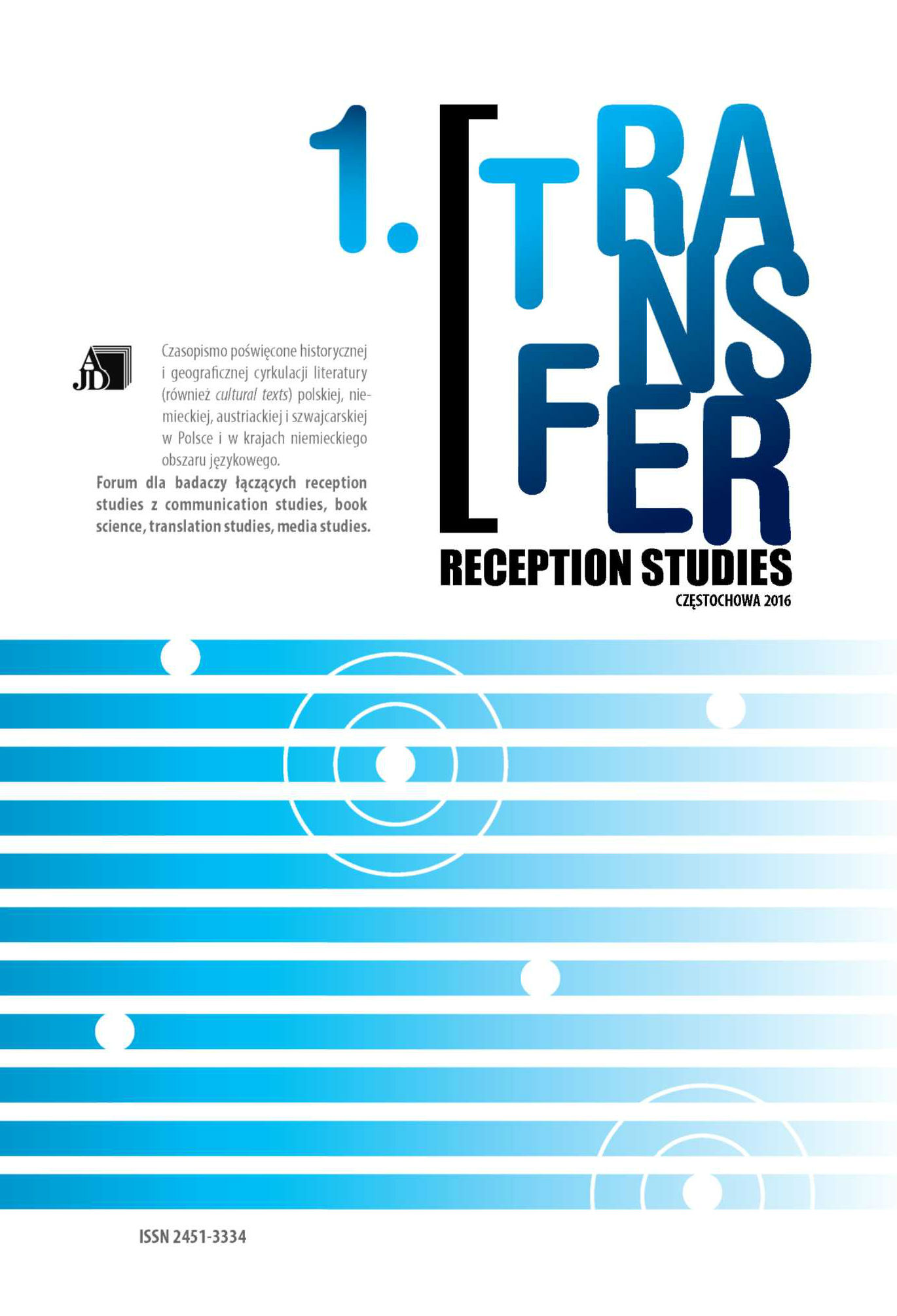Recepcja sztuki Rolfa Hochhutha "Namiestnik" ("Der Stellvertreter" 1963) w Polsce
The Polish Reception of "Der Stellvertreter" (1963) by Rolf Hochhuth
Author(s): Anna SzyndlerSubject(s): Theatre, Dance, Performing Arts, Language and Literature Studies, Fine Arts / Performing Arts
Published by: Uniwersytet Jana Długosza w Częstochowie
Keywords: Rolf Hochhuth; Der Stellvertreter; Holocaust; documentary theater; Polish Reception of „Der Stellvertreter“ by Rolf Hochhuth;
Summary/Abstract: "Der Stellvertreter" by Rolf Hochhuth is a play which is both political and ethical in nature. It is generally recognized as a text that has broken a taboo and triggered an international debate on the papacy and the Holocaust. This first piece of documentary theater condemns the Pope Pius XII because of his failure to denounce the mass murder of the Jews. The play was first staged in Poland in 1966 and at that time was used by the authorities of the People’s Republic of Poland as the instrument in their ideological struggle with the Catholic Church. The play came under severe criticism because of the traumatic experience of World War II which were still fresh in the memory of Polish spectators. They were upset that the accusations of the Pope came from a German playwright, which was perceived as diluting the German responsibility for the atrocities of the Holocaust. Some critics shared negative views of the playwright concerning Pontifex, others saw in art attempts to drop the part of German guilt for Nazi crimes at someone else.
Journal: Transfer. Reception studies
- Issue Year: 1/2016
- Issue No: 1
- Page Range: 51-69
- Page Count: 19
- Language: Polish

